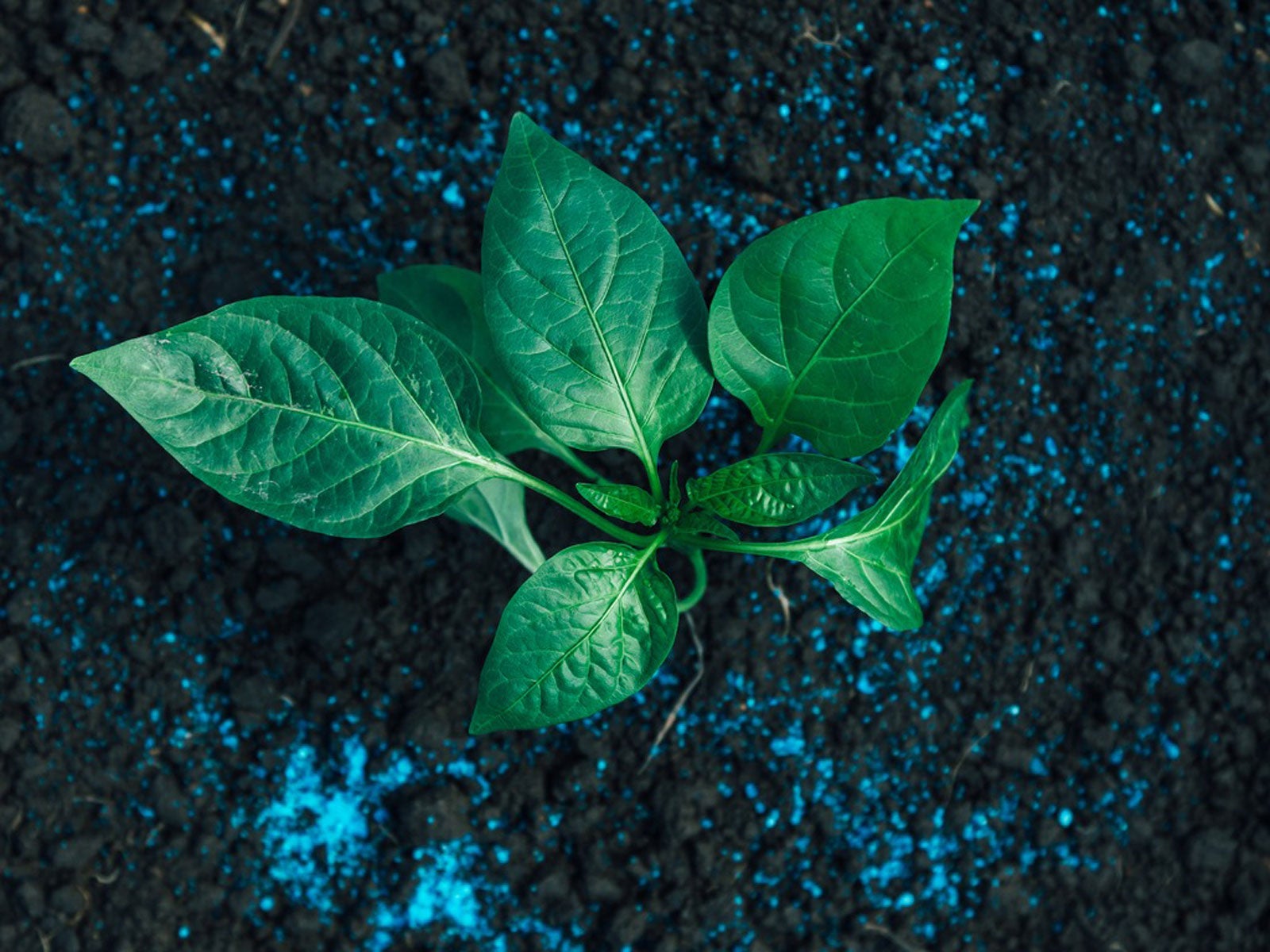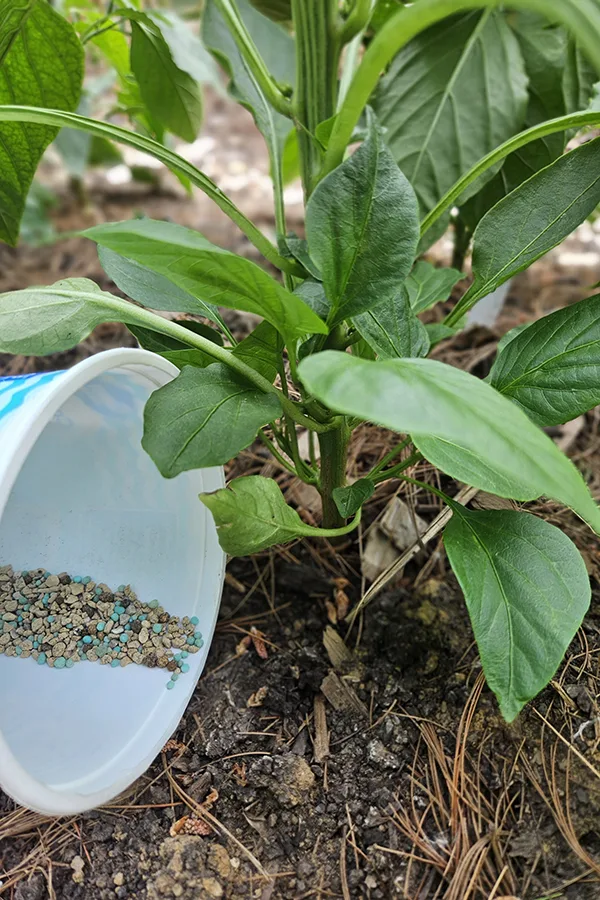Best Fertilizers for Peppers: Increase Growth and Flavor Naturally
Best Fertilizers for Peppers: Increase Growth and Flavor Naturally
Blog Article
Organic Vs. Synthetic Fertilizers: Which Is Best for Nurturing Healthy Pepper Plants?
In the realm of nurturing healthy and balanced pepper plants, the selection in between synthetic and organic fertilizers stands as a pivotal choice with far-ranging ramifications. While both choices aim to provide essential nutrients to sustain plant development, the nuances of their effect on the dirt, plant health, and the environment trigger a dispute that echoes throughout the horticulture neighborhood. Understanding the distinctive benefits and potential challenges of each plant food type is crucial for pepper farmers seeking to maximize their yields while keeping an eco-conscious and lasting method.
Advantages of Organic Fertilizers
Organic fertilizers use an environmentally-friendly and sustainable technique to nourishing pepper plants, supplying important nutrients without making use of synthetic chemicals. These all-natural fertilizers are stemmed from natural sources such as compost, manure, bone dish, and algae, promoting dirt health and biodiversity. Unlike synthetic plant foods, organic choices release nutrients gradually, guaranteeing a constant and balanced supply for pepper plants to flourish.
One substantial benefit of organic plant foods is their ability to boost soil structure and water retention. By boosting soil health and wellness, natural plant foods promote helpful microbial activity, which helps in nutrient uptake by pepper plants. Furthermore, organic plant foods reduce the risk of chemical run-off, shielding water resources from pollution and securing the setting.
Furthermore, organic plant foods contribute to long-lasting dirt fertility by advertising the development of advantageous soil microorganisms. These microorganisms aid break down organic matter, launching nutrients in a form that is quickly obtainable to pepper plants. best fertilizers for peppers. By cultivating a healthy and balanced dirt community, organic fertilizers support sustainable pepper growing methods that benefit both plants and the setting
Drawbacks of Synthetic Fertilizers
Artificial plant foods, in contrast to their organic equivalents, present different disadvantages when made use of to nurture pepper plants, affecting both plant health and ecological sustainability. One significant disadvantage of synthetic plant foods is their tendency to leach nutrients from the dirt rapidly.
Furthermore, the overuse of synthetic plant foods can add to water contamination. Excess fertilizers not absorbed by plants can clean away into water bodies, leading to eutrophication, where algae flowers deplete oxygen degrees in the water, hurting aquatic life. Moreover, synthetic plant foods are commonly originated from non-renewable sources, such as fossil fuels, adding to carbon exhausts and environmental destruction during their manufacturing.
Nutrient Absorption Comparison
Reliable nutrient absorption plays a crucial role in the overall health and wellness and development of pepper plants. When comparing synthetic and natural plant foods in terms of nutrient absorption, organic plant foods have the benefit of offering an extra balanced and slow-release resource of nutrients (best fertilizers for peppers). Organic fertilizers contain a range of macro and micronutrients that are not just useful for the plants however additionally promote healthy and balanced dirt microbial task, which aids in nutrient uptake. On the various other hand, synthetic plant foods usually give a quick release of nutrients, which can cause seeping and drainage, resulting in lower nutrient absorption rates by the plants.
In addition, natural plant foods boost soil structure and water retention capacity, allowing pepper plants to access nutrients more efficiently. This improved dirt quality helps with root development, enabling better nutrient absorption. Artificial plant foods, although originally improving plant growth because of their high nutrient concentrations, might impede long-lasting nutrient absorption by degrading soil wellness with time.
Ecological Effect Considerations

On the other hand, artificial plant foods, although typically more focused and promptly offered to plants, can have destructive results on the atmosphere otherwise applied effectively (best fertilizers for peppers). Their production calls for high energy inputs, bring about greenhouse gas discharges and adding to climate adjustment. The drainage of excess synthetic fertilizers can infect water sources, leading to eutrophication and hurting marine communities.
Ideal Fertilizer Practices for Peppers
To achieve this, it is necessary to follow finest plant food techniques customized to the details demands of pepper plants. One critical practice is to execute a soil test before applying any type of fertilizers.
Another important technique is to feed pepper plants at the correct time. Normally, blog here peppers profit from getting fertilizer at planting and afterwards once more when they start to flower. Over-fertilizing can bring about vitamins and mineral inequalities and hurt the plants, so it is important to adhere to advised application rates.
Furthermore, choosing a balanced plant food with an NPK ratio that matches pepper plants' demands is basic. Eventually, incorporating natural and artificial fertilizers carefully can aid nurture healthy and balanced pepper plants while minimizing environmental influence.
Conclusion

Organic plant foods supply a sustainable and environmentally-friendly strategy to nourishing pepper plants, offering crucial nutrients without the use of synthetic chemicals. Unlike artificial plant foods, natural options release nutrients gradually, making certain a balanced and consistent supply for pepper plants to grow.
Synthetic fertilizers, in contrast to their natural counterparts, pose numerous drawbacks when utilized to nurture pepper plants, influencing both plant wellness and ecological sustainability. When comparing synthetic and organic fertilizers in terms of nutrient absorption, organic fertilizers have the advantage of offering a much more balanced and slow-release source of nutrients.Additionally, organic fertilizers improve soil structure and water retention capacity, allowing i thought about this pepper plants to access nutrients much more effectively.
Report this page